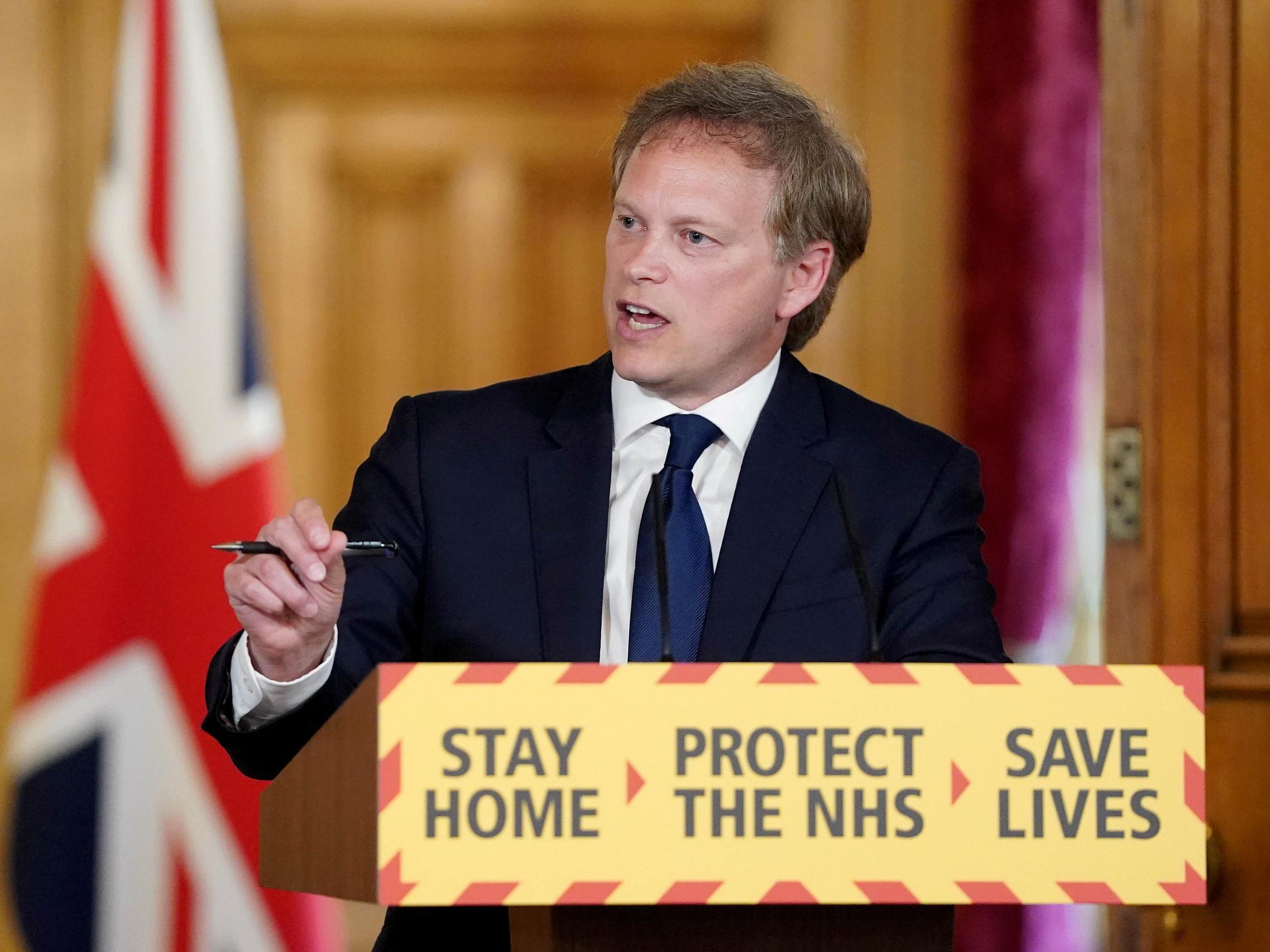
A greater testing capacity in the UK before the coronavirus outbreak took hold would have reduced the number of deaths in the country, a senior government official admitted.
The nation’s testing capacity has been under the spotlight after health secretary Matt Hancock pledged to raise the daily number of tests conducted to 100,000 by the end of last week – a target he ultimately reached.
Now Grant Shapps, the transport secretary, has accepted the nation’s death toll of 28,446 would have been lower if sufficient testing capacity had already been in place in the country.
Download the new Independent Premium app
Sharing the full story, not just the headlines
Asked on BBC One’s The Andrew Marr Show whether fewer people would have died, he said: “Yes. If we had had 100,000 test capacity before this thing started and the knowledge that we now have retrospectively, I’m sure many things could be different.
“The fact of the matter is this is not a country that had – although we’re very big in pharmaceuticals as a country – we’re not a country that had very large test capacity.”
The British government was repeatedly taken to task by critics for its testing capacity in comparison to several other nations, including South Korea, Germany and Iceland.
The transport secretary also confirmed the UK government’s tracing app – which will be able to tell users when they have been in close proximity to an infected or at risk person, will be trialled on the Isle of Wight this week.
Mr Shapps noted the NHSX app would require 50 to 60 per cent of the population to use it for it to be effective.
It comes as the Prime Minister is expected to lay out the road map for coming out of lockdown next week, however it is unclear when the process of returning to daily life will begin.
Mr Shapps meanwhile cautioned that life would not suddenly return to normal.
The latest news on Brexit, politics and beyond direct to your inbox
“I don’t think we should expect us to go from this situation that we have at the moment of social distancing back to where we were in February,” he told Sky News’ Sophy Ridge. “That’s clearly not going to happen and I don’t think anyone imagines that for one moment.
“The most important thing is that the absolute focus of what the prime minister will be announcing later in the week is that what we do do going forward doesn’t undo the brilliant work people have been doing to get that R number below 1 – the all-critical reproduction rate doesn’t come back up because that’s when we’d see a second spike.
“So, no, I’m afraid it is definitely not going to be business as usual but we do want to make sure that people understand where the routemap lies.”
It comes after the health minister for Wales said his government could “not see the science” behind testing expansions in the UK.
Vaughan Gething raised doubts about the benefits and validity of England’s 100,000 tests-per-day target, and defended his own country’s decision not to follow its neighbour and extend testing to all care homes regardless of whether there is an outbreak.
Speaking to BBC Radio Wales on Sunday, Mr Gething said: “England have gone out and created lots of capacity very quickly and they’ve then gone out and used that capacity.
“The challenge is though, that from a policy point of view there is clearly a difference, but that’s partly because England decided that having set a big target they needed to go out and use all the tests.
“Now, other people will tell you about how many of those tests are actual tests, or tests that have been sent out.
“But part of the difficulty we’ve had is that the scientific underpinning for how and why you extend that policy isn’t something where there has been a fully informed debate in advance, and we don’t see that the science supports all of the differences in policy and the testing reach in England.”



